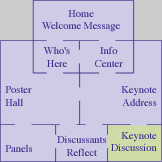Posted by:
Jeanne Century
Posted on: May 07, 2002 at 1:14 PM
Message:
Here at the Center for Science Education at EDC we are just completing a study of nine school districts that have sustained elementary hands-on science programs district-wide for anywhere from 10-30 years. In all cases, the genesis of these programs was independent of any larger overall district reform effort. In looking at the current programs and their history, we found that in several districts the science program has influenced development of reform in other subject areas. For example, the science reform efforts generated models for reform (e.g. resource teacher supports; professional development approaches, etc.) that only after well-established and respected in the context of the science program were they then adopted in other subjects.This holds a certain irony to it, of course, because once proven successful (with certain limitations, of course) and adapted to other subjects, the new subject reforms (math, reading, etc.) then begin to compete for resources and attention with the science programs, leaving the science program to suffer from what we call "lack of squeaky wheel syndrome" (everyone perceives the program is in fine shape - taken care of - and no longer requiring attention). Another interesting influence on the sustainability of the science program and other programs relates to other mentions in this discussion of coherence. We found that when the underlying philosophy of the science program is complementary to the underlying philosophies of other programs in the district, both benefit and strengthen. Not surprising, but confirming of what we would expect.
|


